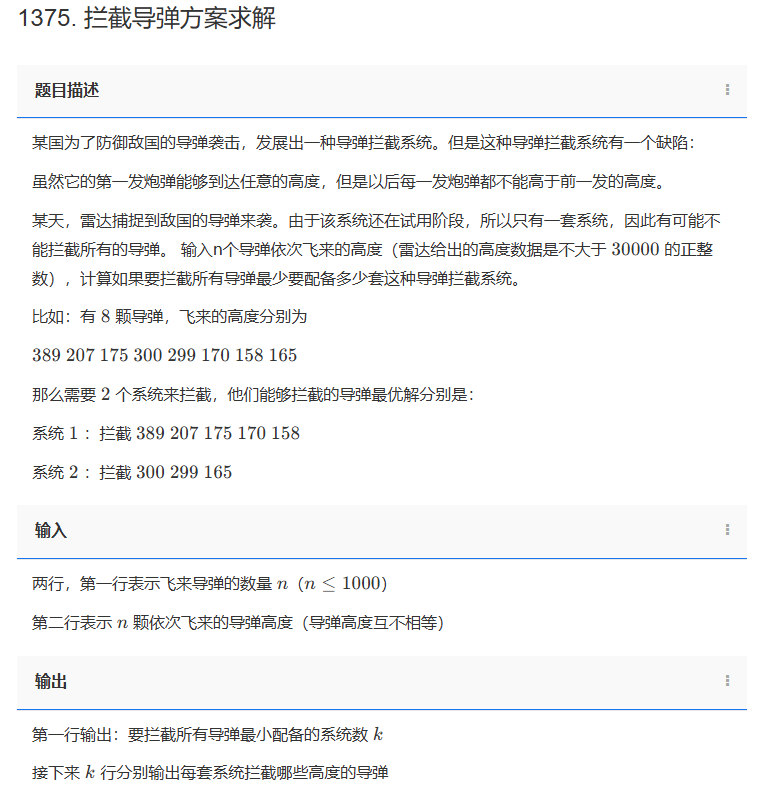1. 概述
- Linux 驱动讲究驱动分离与分层,pinctrl 和 gpio 子系统就是驱动分离与分层思想下的产物。
- pinctrl顾名思义就是引脚控制,用来配置比如引脚mux复用信息,引脚电器属性(比如上/下拉、速度、驱动能力等)信息。
- gpio顾名思义就是控制gpio的输入输出,以及高低电平。不过,大多数的芯片并没有单独的IOMUX模块,引脚的复用、配置等,而是在GPIO模块内部实现的。
2. pin controller的数据结构
2.1 pinctrl_dev
/**
* struct pinctrl_dev - pin control class device
* @node: node to include this pin controller in the global pin controller list
* @desc: the pin controller descriptor supplied when initializing this pin
* controller
* @pin_desc_tree: each pin descriptor for this pin controller is stored in
* this radix tree
* @gpio_ranges: a list of GPIO ranges that is handled by this pin controller,
* ranges are added to this list at runtime
* @dev: the device entry for this pin controller
* @owner: module providing the pin controller, used for refcounting
* @driver_data: driver data for drivers registering to the pin controller
* subsystem
* @p: result of pinctrl_get() for this device
* @hog_default: default state for pins hogged by this device
* @hog_sleep: sleep state for pins hogged by this device
* @mutex: mutex taken on each pin controller specific action
* @device_root: debugfs root for this device
*/
struct pinctrl_dev {
struct list_head node;
struct pinctrl_desc *desc; //提供具体操作方法和抽象包括pincrtl_ops函数,pinmux操作函数和pin的描述等
struct radix_tree_root pin_desc_tree;
struct list_head gpio_ranges;
struct device *dev;
struct module *owner;
void *driver_data;
struct pinctrl *p;
struct pinctrl_state *hog_default;
struct pinctrl_state *hog_sleep;
struct mutex mutex;
#ifdef CONFIG_DEBUG_FS
struct dentry *device_root;
#endif
};2.2 pinctrl_desc
/**
* struct pinctrl_desc - pin controller descriptor, register this to pin
* control subsystem
* @name: name for the pin controller
* @pins: an array of pin descriptors describing all the pins handled by
* this pin controller
* @npins: number of descriptors in the array, usually just ARRAY_SIZE()
* of the pins field above
* @pctlops: pin control operation vtable, to support global concepts like
* grouping of pins, this is optional.
* @pmxops: pinmux operations vtable, if you support pinmuxing in your driver
* @confops: pin config operations vtable, if you support pin configuration in
* your driver
* @owner: module providing the pin controller, used for refcounting
* @num_custom_params: Number of driver-specific custom parameters to be parsed
* from the hardware description
* @custom_params: List of driver_specific custom parameters to be parsed from
* the hardware description
* @custom_conf_items: Information how to print @params in debugfs, must be
* the same size as the @custom_params, i.e. @num_custom_params
*/
struct pinctrl_desc {
const char *name;
struct pinctrl_pin_desc const *pins; //描述一个pin控制器的引脚
unsigned int npins; //描述该控制器有多少个引脚
const struct pinctrl_ops *pctlops; //引脚操作函数,有描述引脚,获取引脚等,全局控制函数
const struct pinmux_ops *pmxops; //引脚复用相关的操作函数
const struct pinconf_ops *confops; //引脚配置相关的操作函数
struct module *owner;
#ifdef CONFIG_GENERIC_PINCONF
unsigned int num_custom_params;
const struct pinconf_generic_params *custom_params;
const struct pin_config_item *custom_conf_items;
#endif
};2.3 pinctrl_pin_desc
/**
* struct pinctrl_pin_desc - boards/machines provide information on their
* pins, pads or other muxable units in this struct
* @number: unique pin number from the global pin number space
* @name: a name for this pin
* @drv_data: driver-defined per-pin data. pinctrl core does not touch this
*/
struct pinctrl_pin_desc {
unsigned number; //引脚序号
const char *name; //引脚名称
void *drv_data;
};2.4 pinctrl_ops
/**
* struct pinctrl_ops - global pin control operations, to be implemented by
* pin controller drivers.
* @get_groups_count: Returns the count of total number of groups registered.
* @get_group_name: return the group name of the pin group
* @get_group_pins: return an array of pins corresponding to a certain
* group selector @pins, and the size of the array in @num_pins
* @pin_dbg_show: optional debugfs display hook that will provide per-device
* info for a certain pin in debugfs
* @dt_node_to_map: parse a device tree "pin configuration node", and create
* mapping table entries for it. These are returned through the @map and
* @num_maps output parameters. This function is optional, and may be
* omitted for pinctrl drivers that do not support device tree.
* @dt_free_map: free mapping table entries created via @dt_node_to_map. The
* top-level @map pointer must be freed, along with any dynamically
* allocated members of the mapping table entries themselves. This
* function is optional, and may be omitted for pinctrl drivers that do
* not support device tree.
*/
struct pinctrl_ops {
int (*get_groups_count) (struct pinctrl_dev *pctldev); //获取组数
const char *(*get_group_name) (struct pinctrl_dev *pctldev, //获取组名
unsigned selector);
int (*get_group_pins) (struct pinctrl_dev *pctldev, //获取某组的引脚
unsigned selector,
const unsigned **pins,
unsigned *num_pins);
void (*pin_dbg_show) (struct pinctrl_dev *pctldev, struct seq_file *s, //用以debugfs提供每个引脚的信息
unsigned offset);
int (*dt_node_to_map) (struct pinctrl_dev *pctldev, //解析设备树节点,转换成pinctrl_map,重点
struct device_node *np_config,
struct pinctrl_map **map, unsigned *num_maps);
void (*dt_free_map) (struct pinctrl_dev *pctldev, //释放map
struct pinctrl_map *map, unsigned num_maps);
};2.5 pinmux_ops
/**
* struct pinmux_ops - pinmux operations, to be implemented by pin controller
* drivers that support pinmuxing
* @request: called by the core to see if a certain pin can be made
* available for muxing. This is called by the core to acquire the pins
* before selecting any actual mux setting across a function. The driver
* is allowed to answer "no" by returning a negative error code
* @free: the reverse function of the request() callback, frees a pin after
* being requested
* @get_functions_count: returns number of selectable named functions available
* in this pinmux driver
* @get_function_name: return the function name of the muxing selector,
* called by the core to figure out which mux setting it shall map a
* certain device to
* @get_function_groups: return an array of groups names (in turn
* referencing pins) connected to a certain function selector. The group
* name can be used with the generic @pinctrl_ops to retrieve the
* actual pins affected. The applicable groups will be returned in
* @groups and the number of groups in @num_groups
* @set_mux: enable a certain muxing function with a certain pin group. The
* driver does not need to figure out whether enabling this function
* conflicts some other use of the pins in that group, such collisions
* are handled by the pinmux subsystem. The @func_selector selects a
* certain function whereas @group_selector selects a certain set of pins
* to be used. On simple controllers the latter argument may be ignored
* @gpio_request_enable: requests and enables GPIO on a certain pin.
* Implement this only if you can mux every pin individually as GPIO. The
* affected GPIO range is passed along with an offset(pin number) into that
* specific GPIO range - function selectors and pin groups are orthogonal
* to this, the core will however make sure the pins do not collide.
* @gpio_disable_free: free up GPIO muxing on a certain pin, the reverse of
* @gpio_request_enable
* @gpio_set_direction: Since controllers may need different configurations
* depending on whether the GPIO is configured as input or output,
* a direction selector function may be implemented as a backing
* to the GPIO controllers that need pin muxing.
*/
struct pinmux_ops {
/*检查某个pin是否已作它用,用于管脚复用时的互斥(避免多个功能同时使用某个pin而不知道,导致奇怪的错误)*/
int (*request) (struct pinctrl_dev *pctldev, unsigned offset);
/*request的反操作。*/
int (*free) (struct pinctrl_dev *pctldev, unsigned offset);
/*获取系统中function的个数。*/
int (*get_functions_count) (struct pinctrl_dev *pctldev);
/*获取指定function的名称。*/
const char *(*get_function_name) (struct pinctrl_dev *pctldev,
unsigned selector);
/*获取指定function所占用的pin group(可以有多个)。*/
int (*get_function_groups) (struct pinctrl_dev *pctldev,
unsigned selector,
const char * const **groups,
unsigned * const num_groups);
/*将指定的pin group(group_selector)设置为指定的function(func_selector)。*/
int (*set_mux) (struct pinctrl_dev *pctldev, unsigned func_selector,
unsigned group_selector);
/*下面是gpio有关的操作*/
int (*gpio_request_enable) (struct pinctrl_dev *pctldev,
struct pinctrl_gpio_range *range,
unsigned offset);
void (*gpio_disable_free) (struct pinctrl_dev *pctldev,
struct pinctrl_gpio_range *range,
unsigned offset);
int (*gpio_set_direction) (struct pinctrl_dev *pctldev,
struct pinctrl_gpio_range *range,
unsigned offset,
bool input);
};2.6 pinconf_ops
/**
* struct pinconf_ops - pin config operations, to be implemented by
* pin configuration capable drivers.
* @is_generic: for pin controllers that want to use the generic interface,
* this flag tells the framework that it's generic.
* @pin_config_get: get the config of a certain pin, if the requested config
* is not available on this controller this should return -ENOTSUPP
* and if it is available but disabled it should return -EINVAL
* @pin_config_set: configure an individual pin
* @pin_config_group_get: get configurations for an entire pin group
* @pin_config_group_set: configure all pins in a group
* @pin_config_dbg_parse_modify: optional debugfs to modify a pin configuration
* @pin_config_dbg_show: optional debugfs display hook that will provide
* per-device info for a certain pin in debugfs
* @pin_config_group_dbg_show: optional debugfs display hook that will provide
* per-device info for a certain group in debugfs
* @pin_config_config_dbg_show: optional debugfs display hook that will decode
* and display a driver's pin configuration parameter
*/
struct pinconf_ops {
#ifdef CONFIG_GENERIC_PINCONF
bool is_generic;
#endif
int (*pin_config_get) (struct pinctrl_dev *pctldev, //获取单个引脚配置
unsigned pin,
unsigned long *config);
int (*pin_config_set) (struct pinctrl_dev *pctldev, //配置单个引脚
unsigned pin,
unsigned long *configs,
unsigned num_configs);
int (*pin_config_group_get) (struct pinctrl_dev *pctldev, //获取某组引脚配置
unsigned selector,
unsigned long *config);
int (*pin_config_group_set) (struct pinctrl_dev *pctldev, //配置某组引脚
unsigned selector,
unsigned long *configs,
unsigned num_configs);
int (*pin_config_dbg_parse_modify) (struct pinctrl_dev *pctldev, //用以debugfs修改pin配置信息
const char *arg,
unsigned long *config);
void (*pin_config_dbg_show) (struct pinctrl_dev *pctldev, //用以debugfs提供pin配置信息
struct seq_file *s,
unsigned offset);
void (*pin_config_group_dbg_show) (struct pinctrl_dev *pctldev, //用以debugfs提供group配置信息
struct seq_file *s,
unsigned selector);
void (*pin_config_config_dbg_show) (struct pinctrl_dev *pctldev, //用以debugfs解析并显示pin的配置
struct seq_file *s,
unsigned long config);
};2.7 pinctrl_map
/**
* struct pinctrl_map - boards/machines shall provide this map for devices
* @dev_name: the name of the device using this specific mapping, the name
* must be the same as in your struct device*. If this name is set to the
* same name as the pin controllers own dev_name(), the map entry will be
* hogged by the driver itself upon registration
* @name: the name of this specific map entry for the particular machine.
* This is the parameter passed to pinmux_lookup_state()
* @type: the type of mapping table entry
* @ctrl_dev_name: the name of the device controlling this specific mapping,
* the name must be the same as in your struct device*. This field is not
* used for PIN_MAP_TYPE_DUMMY_STATE
* @data: Data specific to the mapping type
*/
struct pinctrl_map {
const char *dev_name; //设备名称
const char *name; //该pinctrl_map对应的状态(default、idle、sleep等
enum pinctrl_map_type type; //pinctrl_map的类型,包括mux group、config group、config pins等
const char *ctrl_dev_name; //pinctrl device的名称,根据该名称可获取到soc pin controller对应的pinctrl device
union {
struct pinctrl_map_mux mux; //引脚复用的内容,该数据结构中包含function名称、group名称,通过function、group就可以确定进行引脚复用的引脚id与引脚复用值等信息
struct pinctrl_map_configs configs; //引脚配置相关的内容,包括group或者pin的名称,以及该group、pin的配置信息,实现引脚配置操作。
} data;
};3 client的数据结构

3.1 dev_pin_info
/**
* struct dev_pin_info - pin state container for devices
* @p: pinctrl handle for the containing device
* @default_state: the default state for the handle, if found
*/
struct dev_pin_info {
struct pinctrl *p;
struct pinctrl_state *default_state;
#ifdef CONFIG_PM
struct pinctrl_state *sleep_state;
struct pinctrl_state *idle_state;
#endif
};3.2 pinctrl_state
/**
* struct pinctrl_state - a pinctrl state for a device
* @node: list node for struct pinctrl's @states field
* @name: the name of this state
* @settings: a list of settings for this state
*/
struct pinctrl_state {
struct list_head node;
const char *name;
struct list_head settings;
};4. pincontroller构造过程
4.1. platform匹配过程

4.2. probe过程

解析后大致数据指向如下图:
 4.3. struct pinctrl_ops
4.3. struct pinctrl_ops
4.3.1. get_groups_count(获取组数)
static int imx_get_groups_count(struct pinctrl_dev *pctldev)
{
struct imx_pinctrl *ipctl = pinctrl_dev_get_drvdata(pctldev);
const struct imx_pinctrl_soc_info *info = ipctl->info;
return info->ngroups;
}
4.3.2 get_group_name(获取组的名字)
static const char *imx_get_group_name(struct pinctrl_dev *pctldev,
unsigned selector)
{
struct imx_pinctrl *ipctl = pinctrl_dev_get_drvdata(pctldev);
const struct imx_pinctrl_soc_info *info = ipctl->info;
return info->groups[selector].name;
}4.3.3 get_group_pins(获取组的引脚)
static int imx_get_group_pins(struct pinctrl_dev *pctldev, unsigned selector,
const unsigned **pins,
unsigned *npins)
{
struct imx_pinctrl *ipctl = pinctrl_dev_get_drvdata(pctldev);
const struct imx_pinctrl_soc_info *info = ipctl->info;
if (selector >= info->ngroups)
return -EINVAL;
*pins = info->groups[selector].pin_ids;
*npins = info->groups[selector].npins;
return 0;
}4.3.4 dt_node_to_map (将设备树节点转为map结构体)
static int imx_dt_node_to_map(struct pinctrl_dev *pctldev,
struct device_node *np,
struct pinctrl_map **map, unsigned *num_maps)
{
struct imx_pinctrl *ipctl = pinctrl_dev_get_drvdata(pctldev);
const struct imx_pinctrl_soc_info *info = ipctl->info;
const struct imx_pin_group *grp;
struct pinctrl_map *new_map;
struct device_node *parent;
int map_num = 1;
int i, j;
/*
* first find the group of this node and check if we need create
* config maps for pins
*/
/* 通过节点名称找到组 */
grp = imx_pinctrl_find_group_by_name(info, np->name);
if (!grp) {
dev_err(info->dev, "unable to find group for node %s\n",
np->name);
return -EINVAL;
}
/* 是否需要配置 */
for (i = 0; i < grp->npins; i++) {
if (!(grp->pins[i].config & IMX_NO_PAD_CTL))
map_num++;
}
/* 申请map内存 */
new_map = kmalloc(sizeof(struct pinctrl_map) * map_num, GFP_KERNEL);
if (!new_map)
return -ENOMEM;
*map = new_map;
*num_maps = map_num;
/* create mux map */
parent = of_get_parent(np);
if (!parent) {
kfree(new_map);
return -EINVAL;
}
/* 第0个设置为复用 */
new_map[0].type = PIN_MAP_TYPE_MUX_GROUP;
new_map[0].data.mux.function = parent->name;
new_map[0].data.mux.group = np->name;
of_node_put(parent);
/* create config map */
/* 配置map */
new_map++;
for (i = j = 0; i < grp->npins; i++) {
if (!(grp->pins[i].config & IMX_NO_PAD_CTL)) {
new_map[j].type = PIN_MAP_TYPE_CONFIGS_PIN;
new_map[j].data.configs.group_or_pin =
pin_get_name(pctldev, grp->pins[i].pin);
new_map[j].data.configs.configs = &grp->pins[i].config;
new_map[j].data.configs.num_configs = 1;
j++;
}
}
dev_dbg(pctldev->dev, "maps: function %s group %s num %d\n",
(*map)->data.mux.function, (*map)->data.mux.group, map_num);
return 0;
}以上述ft5x06_pins为例:

4.3.5 dt_free_map
static void imx_dt_free_map(struct pinctrl_dev *pctldev,
struct pinctrl_map *map, unsigned num_maps)
{
kfree(map);
}4.4 struct pinmux_ops
4.4.1 imx_pmx_get_funcs_count(获取功能的个数)
static int imx_pmx_get_funcs_count(struct pinctrl_dev *pctldev)
{
struct imx_pinctrl *ipctl = pinctrl_dev_get_drvdata(pctldev);
const struct imx_pinctrl_soc_info *info = ipctl->info;
return info->nfunctions;
}4.4.2 get_function_name(获取功能的名字)
static const char *imx_pmx_get_func_name(struct pinctrl_dev *pctldev,
unsigned selector)
{
struct imx_pinctrl *ipctl = pinctrl_dev_get_drvdata(pctldev);
const struct imx_pinctrl_soc_info *info = ipctl->info;
return info->functions[selector].name;
}4.4.3 imx_pmx_get_groups (获取组)
static int imx_pmx_get_groups(struct pinctrl_dev *pctldev, unsigned selector,
const char * const **groups,
unsigned * const num_groups)
{
struct imx_pinctrl *ipctl = pinctrl_dev_get_drvdata(pctldev);
const struct imx_pinctrl_soc_info *info = ipctl->info;
*groups = info->functions[selector].groups;
*num_groups = info->functions[selector].num_groups;
return 0;
}4.4.4 set_mux (设置复用)
static int imx_pmx_set(struct pinctrl_dev *pctldev, unsigned selector,
unsigned group)
{
struct imx_pinctrl *ipctl = pinctrl_dev_get_drvdata(pctldev);
const struct imx_pinctrl_soc_info *info = ipctl->info;
const struct imx_pin_reg *pin_reg;
unsigned int npins, pin_id;
int i;
struct imx_pin_group *grp;
/*
* Configure the mux mode for each pin in the group for a specific
* function.
*/
grp = &info->groups[group];
npins = grp->npins;
dev_dbg(ipctl->dev, "enable function %s group %s\n",
info->functions[selector].name, grp->name);
for (i = 0; i < npins; i++) {
struct imx_pin *pin = &grp->pins[i];
pin_id = pin->pin;
pin_reg = &info->pin_regs[pin_id];
if (pin_reg->mux_reg == -1) {
dev_err(ipctl->dev, "Pin(%s) does not support mux function\n",
info->pins[pin_id].name);
return -EINVAL;
}
if (info->flags & SHARE_MUX_CONF_REG) {
u32 reg;
reg = readl(ipctl->base + pin_reg->mux_reg);
reg &= ~(0x7 << 20);
reg |= (pin->mux_mode << 20);
writel(reg, ipctl->base + pin_reg->mux_reg);
} else {
writel(pin->mux_mode, ipctl->base + pin_reg->mux_reg);
}
dev_dbg(ipctl->dev, "write: offset 0x%x val 0x%x\n",
pin_reg->mux_reg, pin->mux_mode);
/*
* If the select input value begins with 0xff, it's a quirky
* select input and the value should be interpreted as below.
* 31 23 15 7 0
* | 0xff | shift | width | select |
* It's used to work around the problem that the select
* input for some pin is not implemented in the select
* input register but in some general purpose register.
* We encode the select input value, width and shift of
* the bit field into input_val cell of pin function ID
* in device tree, and then decode them here for setting
* up the select input bits in general purpose register.
*/
if (pin->input_val >> 24 == 0xff) {
u32 val = pin->input_val;
u8 select = val & 0xff;
u8 width = (val >> 8) & 0xff;
u8 shift = (val >> 16) & 0xff;
u32 mask = ((1 << width) - 1) << shift;
/*
* The input_reg[i] here is actually some IOMUXC general
* purpose register, not regular select input register.
*/
val = readl(ipctl->base + pin->input_reg);
val &= ~mask;
val |= select << shift;
writel(val, ipctl->base + pin->input_reg);
} else if (pin->input_reg) {
/*
* Regular select input register can never be at offset
* 0, and we only print register value for regular case.
*/
if (ipctl->input_sel_base)
writel(pin->input_val, ipctl->input_sel_base +
pin->input_reg);
else
writel(pin->input_val, ipctl->base +
pin->input_reg);
dev_dbg(ipctl->dev,
"==>select_input: offset 0x%x val 0x%x\n",
pin->input_reg, pin->input_val);
}
}
return 0;
}4.4.5 gpio_request_enable (引脚使能)
static int imx_pmx_gpio_request_enable(struct pinctrl_dev *pctldev,
struct pinctrl_gpio_range *range, unsigned offset)
{
struct imx_pinctrl *ipctl = pinctrl_dev_get_drvdata(pctldev);
const struct imx_pinctrl_soc_info *info = ipctl->info;
const struct imx_pin_reg *pin_reg;
struct imx_pin_group *grp;
struct imx_pin *imx_pin;
unsigned int pin, group;
u32 reg;
/* Currently implementation only for shared mux/conf register */
if (!(info->flags & SHARE_MUX_CONF_REG))
return -EINVAL;
pin_reg = &info->pin_regs[offset];
if (pin_reg->mux_reg == -1)
return -EINVAL;
/* Find the pinctrl config with GPIO mux mode for the requested pin */
for (group = 0; group < info->ngroups; group++) {
grp = &info->groups[group];
for (pin = 0; pin < grp->npins; pin++) {
imx_pin = &grp->pins[pin];
if (imx_pin->pin == offset && !imx_pin->mux_mode)
goto mux_pin;
}
}
return -EINVAL;
mux_pin:
reg = readl(ipctl->base + pin_reg->mux_reg);
reg &= ~(0x7 << 20);
reg |= imx_pin->config;
writel(reg, ipctl->base + pin_reg->mux_reg);
return 0;
}4.4.6 gpio_set_direction(设置引脚方向)
static int imx_pmx_gpio_set_direction(struct pinctrl_dev *pctldev,
struct pinctrl_gpio_range *range, unsigned offset, bool input)
{
struct imx_pinctrl *ipctl = pinctrl_dev_get_drvdata(pctldev);
const struct imx_pinctrl_soc_info *info = ipctl->info;
const struct imx_pin_reg *pin_reg;
u32 reg;
/*
* Only Vybrid has the input/output buffer enable flags (IBE/OBE)
* They are part of the shared mux/conf register.
*/
if (!(info->flags & SHARE_MUX_CONF_REG))
return -EINVAL;
pin_reg = &info->pin_regs[offset];
if (pin_reg->mux_reg == -1)
return -EINVAL;
/* IBE always enabled allows us to read the value "on the wire" */
reg = readl(ipctl->base + pin_reg->mux_reg);
if (input)
reg &= ~0x2;
else
reg |= 0x2;
writel(reg, ipctl->base + pin_reg->mux_reg);
return 0;
}4.5 struct pinconf_ops
4.5.1 pin_config_get(获取配置)
static int imx_pinconf_get(struct pinctrl_dev *pctldev,
unsigned pin_id, unsigned long *config)
{
struct imx_pinctrl *ipctl = pinctrl_dev_get_drvdata(pctldev);
const struct imx_pinctrl_soc_info *info = ipctl->info;
const struct imx_pin_reg *pin_reg = &info->pin_regs[pin_id];
if (pin_reg->conf_reg == -1) {
dev_err(info->dev, "Pin(%s) does not support config function\n",
info->pins[pin_id].name);
return -EINVAL;
}
*config = readl(ipctl->base + pin_reg->conf_reg);
if (info->flags & SHARE_MUX_CONF_REG)
*config &= 0xffff;
return 0;
}4.5.2 pin_config_set(配置引脚)
static int imx_pinconf_set(struct pinctrl_dev *pctldev,
unsigned pin_id, unsigned long *configs,
unsigned num_configs)
{
struct imx_pinctrl *ipctl = pinctrl_dev_get_drvdata(pctldev);
const struct imx_pinctrl_soc_info *info = ipctl->info;
const struct imx_pin_reg *pin_reg = &info->pin_regs[pin_id];
int i;
if (pin_reg->conf_reg == -1) {
dev_err(info->dev, "Pin(%s) does not support config function\n",
info->pins[pin_id].name);
return -EINVAL;
}
dev_dbg(ipctl->dev, "pinconf set pin %s\n",
info->pins[pin_id].name);
for (i = 0; i < num_configs; i++) {
if (info->flags & SHARE_MUX_CONF_REG) {
u32 reg;
reg = readl(ipctl->base + pin_reg->conf_reg);
reg &= ~0xffff;
reg |= configs[i];
writel(reg, ipctl->base + pin_reg->conf_reg);
} else {
writel(configs[i], ipctl->base + pin_reg->conf_reg);
}
dev_dbg(ipctl->dev, "write: offset 0x%x val 0x%lx\n",
pin_reg->conf_reg, configs[i]);
} /* for each config */
return 0;
}5. client节点的pinctrl构造过程
函数调用
really_probe
pinctrl_bind_pins
dev->pins = devm_kzalloc(dev, sizeof(*(dev->pins)), GFP_KERNEL);
dev->pins->p = devm_pinctrl_get(dev);
pinctrl_get
create_pinctrl(dev);
ret = pinctrl_dt_to_map(p);
for_each_maps(maps_node, i, map) {
ret = add_setting(p, map);
}
dev->pins->default_state = pinctrl_lookup_state(dev->pins->p,
PINCTRL_STATE_DEFAULT);



















